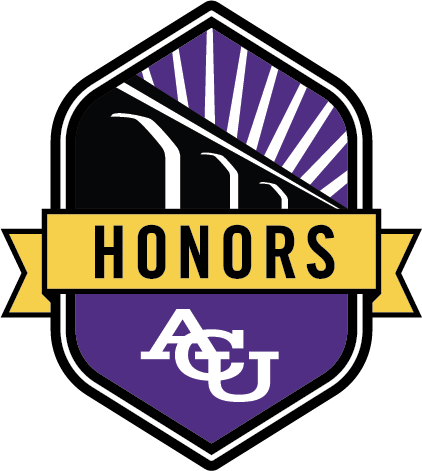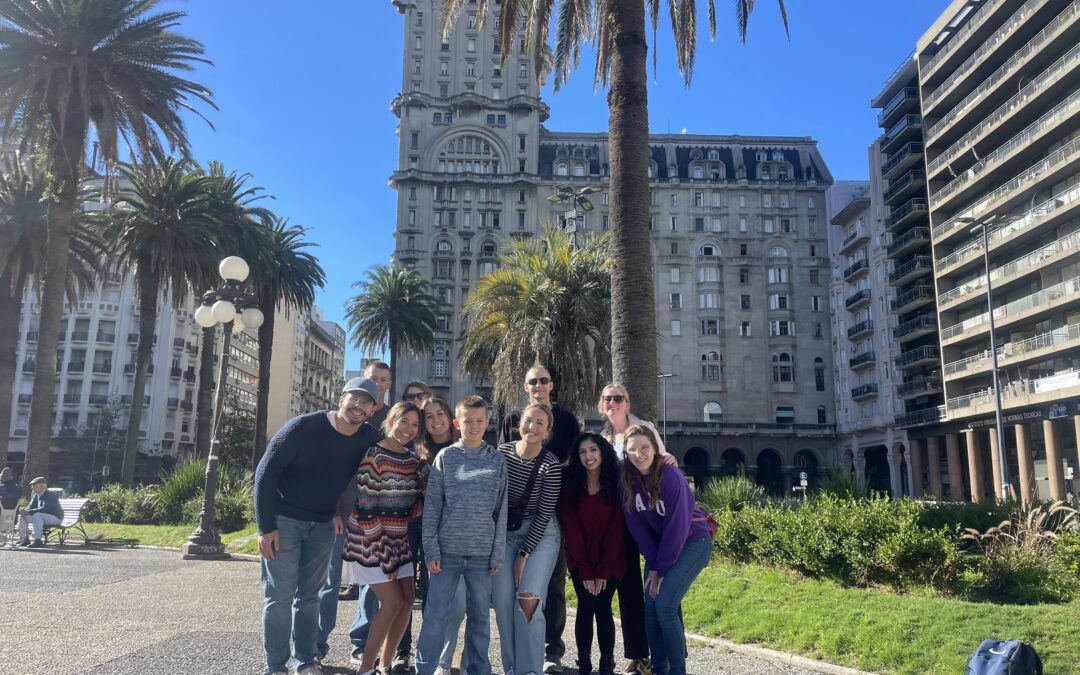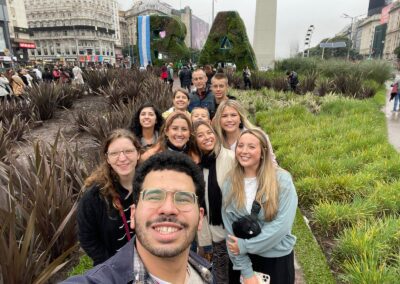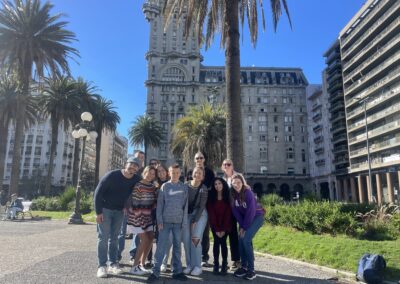by Caitlin Martin| Summer 2024 |
This summer, I had the incredible opportunity to study abroad in Montevideo, Uruguay. Before hearing about this program, I had never heard of the country of Uruguay. Even when I did sign up for the program, I heard very little about what this community or culture looked like from ACU staff. I came into this experience with no expectations but came out with a new perspective and way of life.
One of the beautiful things about this program is that Montevideo is not a touristy city. Sure, there’s Ciudad Vieja, which is lined with what seems like an endless number of shops and restaurants, much like a cruise port. We visited the ashes of Artigas, the man regarded as the father of Uruguay, and learned about the history of this country through guided tours of Montevideo. We saw the legislative palace and learned about how their government is set up (which is very similar to here in the U.S.). In addition, we stayed the night in Buenos Aires, where we got to shop at la Boca, a colorful street near the port, visit the Recoleta Cemetery, where we saw where Evita was buried, and watch a tango show. All of this was incredible, but it is not what I will remember most about the trip. My favorite part of this experience was connecting with locals, getting to know them, and participating in their culture. We shared meals together, talking about school, fútball, and any other topic that came to mind. I got to experience the joy when Uruguay beat Brazil in Copa de America and the despair when they lost to Colombia. I had some of the best steak of my life when we hosted an asado and got to participate in one of their pillars of culture. We talked over coffee as I learned more about their way of life.
Things move at a slower pace in Uruguay. If dinner is scheduled for 8:00, expect to be eating at 9:30. Plans come together very quickly and at the last minute, so I found a need to be flexible. I found this to contrast with our culture in America, as everything feels rushed and busy. This was something I struggled to adjust to, but I learned that even if a schedule isn’t followed, the world keeps going, and I am capable of being flexible. I also gained a greater sense of empathy for people immigrating to a new country and not knowing the native language spoken there.
I knew being in a country where English is not the primary language was going to be difficult, but I didn’t realize how hard it was going to be until I got there. There were times that I felt frustrated and embarrassed because I couldn’t communicate. I experienced anxiety when in situations that required me to speak Spanish. I was exhausted because I was focusing twice as hard on following a conversation. However, it did get easier with time. I learned to communicate with the words I did know and began to recognize more words when listening to other people speak. I celebrated my language wins and learned from my mistakes. Most people were incredibly kind and understanding. It made it easier to learn and gave me the confidence to keep trying. Most importantly, I will remember the care of this community as they put people first. Their intentionality and kindness to me, a foreigner, is something I want to pay forward as I come back to live in the United States.




